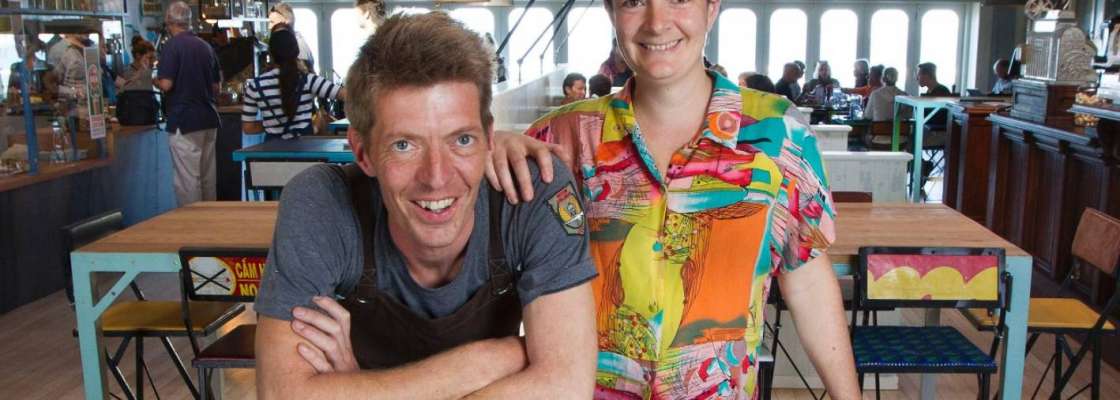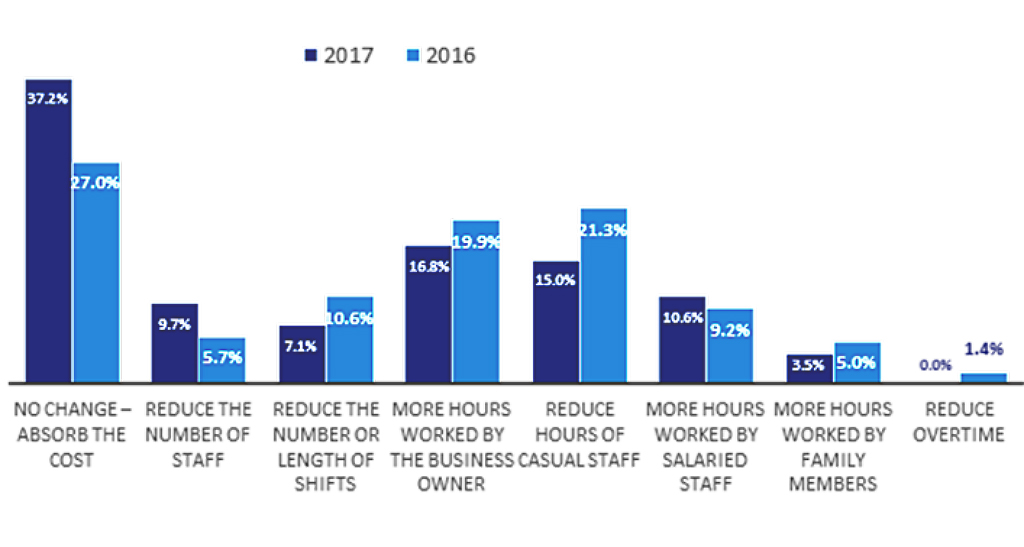Nearly every other new large office building incorporates cafes and restaurants as an essential offering for tenants.
They helped boost the number of food and beverage outlets in New Zealand last year by 7.4 per cent, and have proved a boon for commercial property owners leasing space.
The biggest jump was in Canterbury where the growth in the number of restaurants and bars was 11.6 per cent as new buildings have been completed and leased as part of the post-earthquake rebuild.
Christchurch has also had a large number of business collapses, sometimes within months of opening, such as the Good Goat, and Chopped, both in Victoria St.
The churn rate of hospitality businesses is about three years on average before the enterprise is sold or closed – although the Restaurant Association said the rate was about seven years for its members.
Bars and restaurants need to become increasingly creative as they absorb staff wage and food price rises especially as the lower spending winter season approaches, according to ANZ commercial and agri-general manager Penny Ford.
She said consumer spending across the restaurant, cafe, bar and nightclub sector grew by 15 per cent over the past two years.
But the median growth in revenue for individual businesses was about 4 per cent – in other words, the spending was spread more thinly than before across more outlets.
Auckland had a 10 per cent increase in outlets, while Wellington had a 3 per cent increase.
Auckland’s bigger population supports about 6500 food and beverage operators compared with 2100 in Canterbury and a similar number in Wellington.
The fastest growing type of outlet nationally was fast food providers.
Rent costs have remained relatively steady at about 7 per cent of revenue since 2014. the ANZ report said.
ANZ’s benchmarking of 43 businesses shows revenue growth was only marginally up and the median results for wages and salaries as a proportion of expenditure was about 35 per cent.
With the Government indicating the minimum wage will increase from $15.75 an hour to $20 by April 2021, Ford said businesses would need to be proactive around managing costs.
“While forecasting wage growth is difficult, and a 27 per cent minimum wage increase would apply only to employees on the minimum rate, any increase would have an impact on the bottom line.
“Finding a point of difference, structuring service offerings and looking at different ways to manage supply chains are ways businesses can deal with this cost increase.”
“If businesses are relying on one input being cheap, like wages, the reality is that business will be vulnerable.”
Businesses were responding to demand for a different dining experience, whether through a sustainably grown paddock-to-plate story, or catering to the increasing number of people moving out of major cities, Ford said.
The hospitality sector is supported mainly by local with about 80 per cent of revenue from local diners, while international spending varies seasonally to about half the summer level.
Restaurant Association of NZ chief executive Marisa Bidois said Kiwis spent about $10 billion annually on hospitality, which employed more than 120,000 people.
Meanwhile, the latest hospitality to come to market is central Wellington Italian restaurant Pizzeria Napoli.
Current owner Raffaele de Gregorio, an ex-All Whites midfielder, said the business has excellent profit margins, and earnings before interest depreciation and tax last year was $280,000, excluding owner salaries.
The sale is being managed by Century 21’s Geoff Barnett.
Article by: Chris Hutching, Stuff






